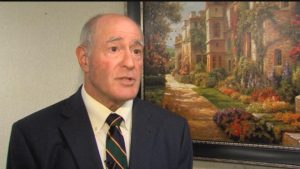I just read a generally friendly article about Texas state Sen. Kel Seliger.
The Odessa American piece profiles Seliger, who represents one of the most sprawling Senate districts in Texas.
The very size of the district helps illustrate one of the critical issues facing any West Texas lawmaker as he or she seeks to represent the varied interests of the region.
I have known Seliger for as long as I’ve lived in the Texas Panhandle. That totals 21 years. He was Amarillo’s mayor when my wife and I arrived here and I’ve watched him operate up close for that entire time, first at City Hall and for the past dozen years as a state legislator.
I consider him a friend as well.
That all said, I believe he has done a good job representing Senate District 31 since he was first elected in 2004.
He’s got a couple of potential issues with which he must contend, though, as he seeks to continue that service to the district and the state.
One of them is geography. The other is ideology.
First, the geographical issue.
Texas legislators keep redrawing legislative and congressional districts after every census. The 2011 Legislature produced a District 31 that runs from the top of the Panhandle all the way to the Permian Basin. It takes about six hours to drive from one end of the district to another — and that’s at 75 mph most of the way!
Seliger hails from the Panhandle, but he must be dialed in to the concerns of the other end of the district. As the Odessa American article suggests, Seliger does a good job tending to the needs of the southern end of District 31.
Former House Speaker Tom Craddick of Midland credits Seliger with keeping his radar fixed to the needs of the entire district.
Seliger has his share of friends and political allies throughout Senate District 31. Those who know Seliger understand the ease with which he is able to engage his constituents.
The Republican lawmaker, though, faces another potential problem. It’s the widening ideological gap within the Republican Party. Consider his 2014 re-election campaign.
His primary opponent that year was former Midland Mayor Mike Canon, who was recruited by arch-conservative political operatives to challenge Seliger because, they contended, the incumbent wasn’t “conservative enough.”
Canon is a nice fellow and actually quite smart. But I witnessed something about him during a Panhandle PBS-sponsored candidate forum in the spring of 2014. He answered direct questions with sound bites, clichés and talking points. Seliger’s answers to the same questions were full of nuance, detail and a keen understanding of the complicated process of legislating.
Seliger’s knowledge of the Texas Senate and how it works was barely enough to enable him to win the GOP primary that year. He squeaked by a patently inferior candidate. Why is that? Because the West Texas Republican TEA Party “base” got mobilized by the idea of knocking off someone who, in their view, didn’t comport with their notion of a “true conservative.”
He spoke to the Odessa newspaper about that campaign, saying that “Most Republicans are pretty darn conservative.” He calls himself a conservative.
Of the two potential pitfalls awaiting Seliger, I consider ideology to be the greater threat.
He’s managed to spend a lot of time traveling from one end of Senate District 31 to the other and back again, learning the myriad issues that concern its residents.
However, it remains to be seen whether that will be enough to satisfy the intense ideological fervor of those on the extreme right fringe of the Grand Old Party.
